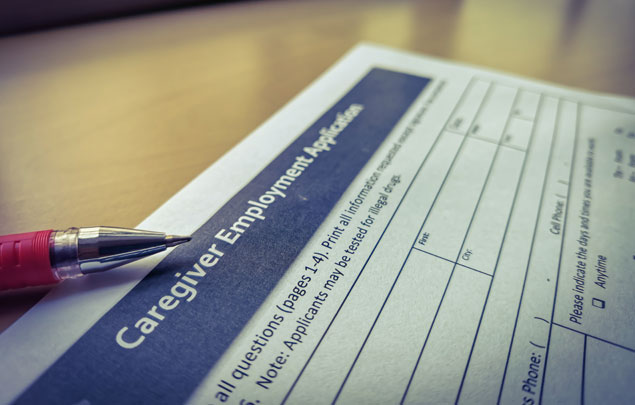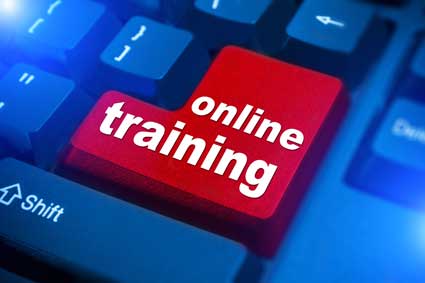Course Description
Everyone occasionally gets angry and anger is a natural reaction to the things that happen: to you, around you, to someone you care for. Anger is a normal emotion unless the result of your anger is such that your reaction becomes uncontrollable, violent, or destructive.
When anger becomes your reaction of choice to even the most minor of situations, or if you find yourself lashing out unnecessarily at people you love, respect, or care for, your anger may be spiraling out of control. Out of control anger can lead to many psychological and emotional issues, as well as many difficulties with your career, important relationships, and friendships.
This course will provide the information you will need to end the anger cycle and live up to your true potential. We will discuss these topics:
What are Various forms of Anger
What are the Responses to Anger
How to Control Anger
Developing Empathy
Passive Aggressive Behaviors
Stress Factors
Anger in Relationships
Professional Help Resources
Breathing and Relaxation Exercises
 Everyone occasionally gets angry, and anger is a reaction to the things that happen: to you, around you, or to someone you care for. Anger is a normal, natural emotion – unless the result of your anger is such that your reaction becomes uncontrollable, violent, or destructive.
Everyone occasionally gets angry, and anger is a reaction to the things that happen: to you, around you, or to someone you care for. Anger is a normal, natural emotion – unless the result of your anger is such that your reaction becomes uncontrollable, violent, or destructive. When anger becomes your reaction of choice to even the most minor of situations, or if you find yourself lashing out unnecessarily at people you love, respect, or care for, your anger may be spiraling out of control. Out-of-control anger can lead to many psychological and emotional issues, as well as many difficulties with your career, important relationships, and friendships.
What Is Anger?
Anger is an emotional state that occurs when unexpected things happen to you, or around you, that you don't like. The feelings you have can be as mild as annoyance, and as extreme as fury and rage.
Anger is a very subjective emotion. What makes one person angry may not bother another person at all. There are three basic types of anger that psychologists recognize as being different emotional states. The first is a defense mechanism that occurs when we feel threatened or trapped. The second form of anger exists as a reaction to the interpretation of events in which we believe that we are deliberately being harmed or being treated unfairly. The last type of anger is the irritable, sullen anger more closely associated to personality than to emotion.

Basically, anger is the emotional response you feel when your expectations are not met. It might be an unmet expectation that people will do the "right" thing (like return your wallet, money intact, when you lose it in a restaurant or at the mall); or that people will do things the "right" way (like when you asked your son to wash the car and he didn't rinse off the soap and you had to re-wash it yourself, but you didn't discover it right away so there was more work involved). It might be an expectation that you will have a good day, that traffic will flow smoothly – and then you get caught behind a 14-car pileup on the freeway. It may even be an expectation that you have of yourself -- expecting yourself to be able to do a certain specific task or perform a certain function, and then when you are unable to perform at the level you expected of yourself, you become angry.
Many times, people do not realize they are angry until it is too late -- when they are saying horrible things to someone whom they love, or behaving violently toward someone. Some people will not realize anger has done any damage until well after the reaction they have had, when they are dealing with the consequences of the action (like getting arrested for domestic violence, or brawling in a pub). Part of anger management is learning to recognize the feeling of anger before the reaction to anger happens.
What Causes Anger?
The emotion of anger can be set off by both internal and external triggers. Internal triggers may include reactions to things you may already be sensitive about, like being teased. External triggers are things beyond your control that don't happen in the way they should. Certain situations can make you angry – particularly when you feel like you have no control over circumstances (you show up for a doctor's appointment you've been waiting to go to for more than a month, and when you get there, the doctor has been called away to surgery).People can make you angry. Even memories can make you angry.
Anger is an instinctual emotion that can cause an aggressive urge. It is a completely normal response; it is an ancient part of our defense mechanism that allowed us to survive, adapt, and defend, making it a necessary survival instinct. Anger is a completely normal and natural feeling to have. However, inappropriate anger response is often the cause of altercations, run-ins with police, domestic violence issues, and other less favorable outcomes.
Sometimes, our behavior when we're angry becomes a comfortable habit – a feeling we are used to having. We recognize the feeling of anger, without even realizing we are angry, and react in a habitual, but unhealthy way without stopping to think about what it was that made us angry, or why. Part of anger management and taking an anger management course is to learn to stop that habit of reaction.
Summary
Anger is a normal, natural emotion, and without it we would be less able to defend ourselves when needed. However, our physical reaction to anger and the way we express anger can become a problem for some. Anger management helps people learn how to recognize and control their reactions to anger.
- Completely Online
- Self-Paced
- Printable Lessons
- Full HD Video

- 6 Months to Complete
- 24/7 Availability
- Start Anytime
- PC & Mac Compatible
- Android & iOS Friendly
- Accredited CEUs

Learning Outcomes
- Identify what anger is.
- Recognize area responses to anger.
- Perform variety of methods to control anger.
- Develop empathy.
- Recognize different forms of passive aggressive behavior.
- Identify stress factors that cause anger.
- Recognize the use of anger in key relationships.
- Identify when to seek professional help.
- Utilize breathing and relaxation exercises to better control anger and outbursts.
- Demonstrate mastery of lesson content at levels of 70% or higher.
Assessment Guide
| Assessment | Points |
|---|---|
| Lesson 1 Assignment | 2 points |
| Lesson 1 - The Basics of Anger | 20 points |
| Lesson 2 Assignment | 2 points |
| Lesson 2 - Area Responses to Anger | 19 points |
| Lesson 3 Assignment | 2 points |
| Lesson 3 - Identifying Anger | 19 points |
| Lesson 4 Assignment | 2 points |
| Lesson 4 - Controlling Anger | 20 points |
| Lesson 5 Assignment | 2 points |
| Lesson 5 - Developing Empathy | 19 points |
| Lesson 6 Assignment | 2 points |
| Lesson 6 - Passive Aggressive Behavior | 19 points |
| Lesson 7 Assignment | 2 points |
| Lesson 7 - Stress | 20 points |
| Lesson 8 Assignment | 2 points |
| Lesson 8 - Anger in Key Relationships | 19 points |
| Lesson 9 Assignment | 2 points |
| Lesson 9 - Professional Help | 19 points |
| Lesson 10 Assignment | 2 points |
| Lesson 10 - Breathing and Relaxation Exercises | 15 points |




















